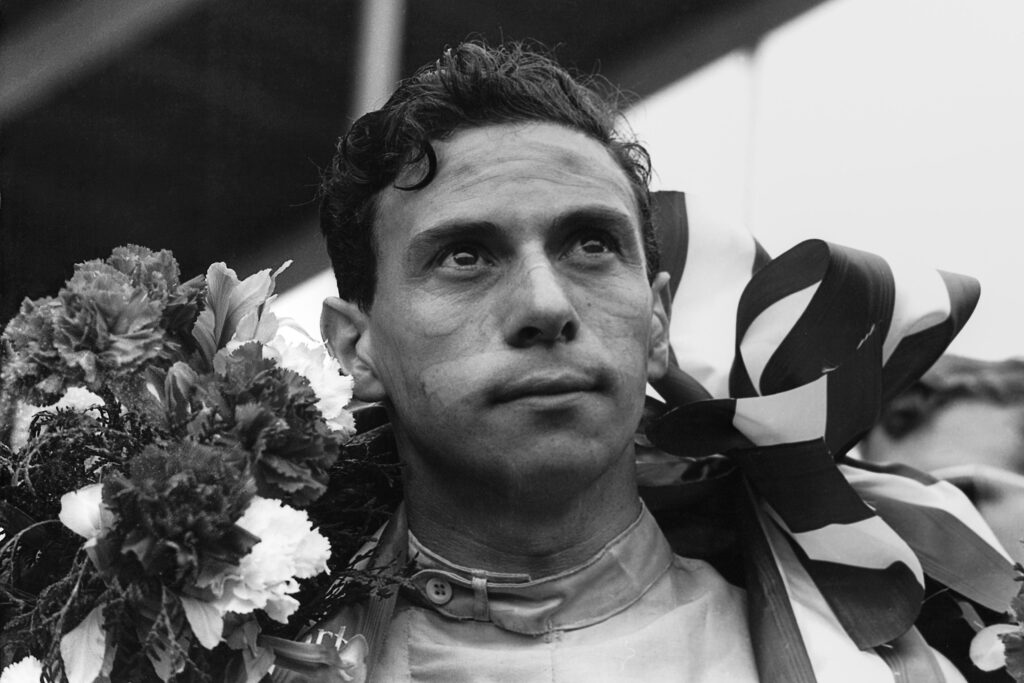Introduction
Formula 1 the epitome of motorsport excellence, has witnessed the ascent of numerous legends throughout its storied history. These remarkable racers have not only shattered records but also endeared themselves to fans worldwide through their unparalleled skill, magnetic charisma, and unwavering determination. In this comprehensive blog update, we embark on a thrilling journey through the careers of the seven preeminent Formula 1 racers of all time.
1. Juan Manuel Fangio

Juan Manuel Fangio, the Argentine racing virtuoso, left an indelible mark on the sport during the 1950s. With a remarkable five World Championships to his name, Fangio’s extraordinary adaptability across different cars and his strategic brilliance firmly establish him as an undisputed legend in the realm of Formula 1.
World Championships: 5 (1951, 1954, 1955, 1956, 1957)
Total Wins: 24
Pole Positions: 29
Fastest Laps: 23
2. Ayrton Senna

Ayrton Senna, the Brazilian sensation, infused Formula 1 with an unparalleled blend of passion and intensity. His triumphant capture of three World Championships and his fearless driving style endeared him to fans worldwide, making him both a fan favorite and a symbol of unwavering dedication to the sport.
World Championships: 3 (1988, 1990, 1991)
Total Wins: 41
Pole Positions: 65
Fastest Laps: 19
3. Michael Schumacher

Michael Schumacher, the German prodigy, embarked on a record-breaking journey with an astounding seven World Championships and a plethora of race victories. His relentless pursuit of perfection and his era-defining success with Ferrari in the early 2000s firmly solidify his status as one of Formula 1’s all-time greats.
World Championships: 7 (1994, 1995, 2000, 2001, 2002, 2003, 2004)
Total Wins: 91
Pole Positions: 68
Fastest Laps: 77
4. Lewis Hamilton

In the contemporary era, Lewis Hamilton has emerged as a dominant force, rewriting the record books with seven World Championships and an impressive tally of race victories. His meticulous approach to racing and his unwavering commitment to addressing social issues have elevated him to the status of an icon both on and off the Formula 1 track.
World Championships: 7 (2008, 2014, 2015, 2017, 2018, 2019, 2020)
Total Wins: Over 100
Pole Positions: Over 100
Fastest Laps: Over 50
5. Alain Prost

Alain Prost, known as “The Professor,” displayed tactical genius and unwavering consistency throughout his illustrious career, amassing four World Championships. His iconic rivalry with Senna remains one of the most enduring chapters in the annals of Formula 1 history.
World Championships: 4 (1985, 1986, 1989, 1993)
Total Wins: 51
Pole Positions: 33
Fastest Laps: 41
6. Niki Lauda

Niki Lauda’s awe-inspiring comeback from a near-fatal accident stands as a testament to his unparalleled resilience. The Austrian racing legend secured three World Championships and left behind an enduring legacy characterized by unyielding determination and unwavering tenacity.
World Championships: 3 (1975, 1977, 1984)
Total Wins: 25
Pole Positions: 24
Fastest Laps: 24
7. Jim Clark

Jim Clark, the Scottish gentleman racer, enchanted fans with his sublime driving prowess. Despite his tragically brief career, he clinched two World Championships and remains an enduring symbol of Formula 1’s golden era.
World Championships: 2 (1963, 1965)
Total Wins: 25
Pole Positions: 33
Fastest Laps: 28
Conclusion
These seven titanic figures have forever etched their names into the annals of Formula 1 history, each leaving an indelible and unique mark on the sport. From the halcyon days of racing to the modern era of cutting-edge technology, their contributions continue to inspire and captivate fans across the globe. As we celebrate their unparalleled greatness, we also eagerly anticipate the emergence of future talents who aspire to ascend the hallowed ranks of Formula 1 icons.
FAQs
1. Who is the most successful Formula 1 racer of all time?
Lewis Hamilton holds this esteemed title with an astounding seven World Championships, a remarkable achievement within his era.
2. How many World Championships did Ayrton Senna win?
Ayrton Senna secured three World Championships during his illustrious Formula 1 career.
3. What is Lewis Hamilton’s contribution outside of racing?
Lewis Hamilton is a prominent advocate for various social and environmental causes, utilizing his platform to effect positive change beyond the racetrack.
4. How did Niki Lauda’s accident impact his career?
Niki Lauda’s remarkable comeback from a near-fatal accident in 1976 serves as a testament to his incredible determination and resilience, enhancing his legendary status.
5. Why is safety advocacy important in Formula 1?
Safety advocacy, exemplified by figures like Sir Jackie Stewart, plays a vital role in preserving the lives of drivers and elevating the overall safety standards within the sport.
Also checkout our recent blogs: Blogsroom
if you are interested in IPO related content then make sure to check out ipohunts.
If you are Interested in cricket buzzers and updates then make sure to check out crikzone.
